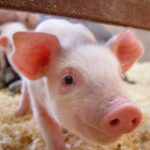The probe into Alberta’s first-ever outbreak of porcine epidemic diarrhea hasn’t yet shown any paths by which the PED virus might have got to the farm — nor any new cases anywhere else in the province. The provincial government on Jan. 7 confirmed the first case of PED to appear in hogs in Alberta, at












